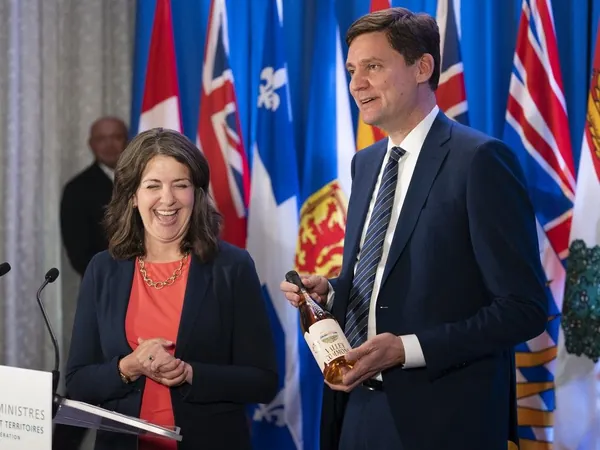
Western Premiers Demand Reform as Equalization Payments Soar to Unprecedented $26.2 Billion
2025-01-03
Author: Emily
Canada's federal equalization payment system is once again stirring controversy, with the Western provinces left out while the payments reach a record high of $26.2 billion for the fiscal year 2025-26. This has sparked outrage and calls for reform from the premiers of Saskatchewan, Alberta, and British Columbia.
In a stark reminder of regional disparities, Saskatchewan Premier Scott Moe voiced his frustration via social media, stating, “The federal government has announced equalization payments for 2025, and once again, Saskatchewan, Alberta, and British Columbia will be helping support the rest of Canada.” Alberta Premier Danielle Smith quickly echoed this sentiment, insisting that the current equalization system is "neither fair nor sustainable." She demanded a "better deal" that shares the financial burden more equitably across provinces.
These tensions aren't new, but they have reached a boiling point amidst a national cost-of-living crisis. British Columbia Premier David Eby expressed his ire back in June, saying, “Enough is enough,” as he lamented the continuous flow of taxpayer money to central and eastern provinces while Western residents grapple with their own economic challenges.
The three Western premiers are rallying behind a lawsuit initiated in Newfoundland and Labrador aimed at challenging the current formula used by Ottawa to designate provinces as "have-not" and determine equalization payments. This legal challenge highlights the sentiments of many Canadians who feel that the system disproportionately favors certain regions over others.
Experts are noting that the Equalization Program's growth has been propelled by an escalator clause implemented after a 2006 review, which critics argue has led to increasingly inflated payments. Haizhen Mou, a scholar from the University of Saskatchewan, emphasized, “Equalization funds keep growing every year based on the nominal national growth rate,” a situation that has led to a narrowing wealth gap between the West and the rest of the country.
Colleen Collins, head of the Canada West Foundation, shared that these frustrations reflect deeper systemic issues regarding regional representation in federal policy-making. "The West feels underrepresented and undervalued," Collins noted, pointing out that this sentiment has persisted beyond differing political leadership.
As expected, Quebec emerged as the largest recipient of equalization payments, securing a substantial $13.6 billion—an increase compared to the previous fiscal year. The maritime provinces collectively will receive $7.3 billion, while Manitoba is set to benefit from $4.7 billion. Ontario and Newfoundland and Labrador will receive smaller amounts of $546 million and $113 million, respectively.
Critics argue that the current federal equalization system does not incentivize good governance in recipient provinces. Renaud Brossard from the Montreal Economic Institute highlighted that such payments shield provinces from the full consequences of ineffective policies, which can hinder genuine economic growth. He noted that Quebec's resource management policies, including artificially low electricity prices and bans on oil and gas development, reflect a trend that could disincentivize sound economic decision-making.
In light of these escalating tensions and the uneven distribution of resources, the premiers of the Western provinces are calling for an urgent review of the equalization payment system. As Canada grapples with its economic challenges, the debate surrounding fiscal fairness is likely to intensify, placing pressure on the federal government to reconsider its approach and foster a more equitable environment for provinces across the nation.
Stay tuned for further developments as this vital issue continues to unfold in Canadian politics!


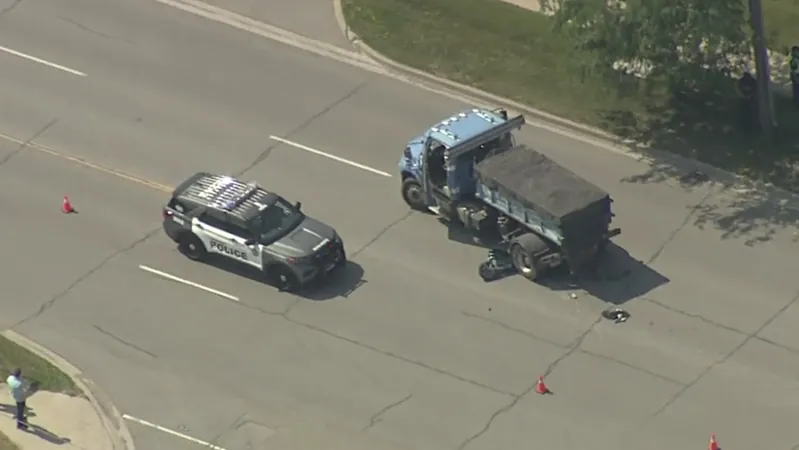

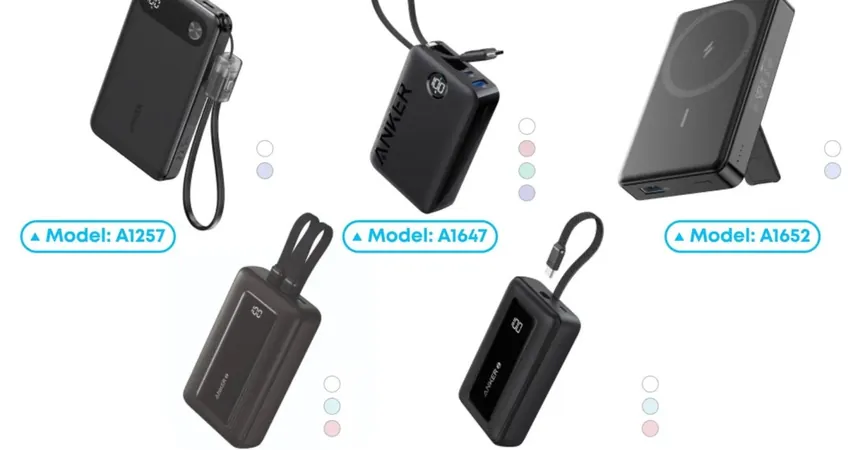
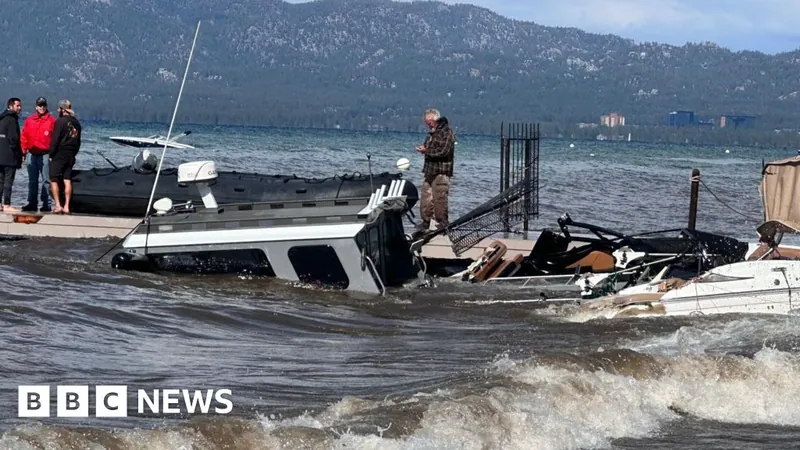
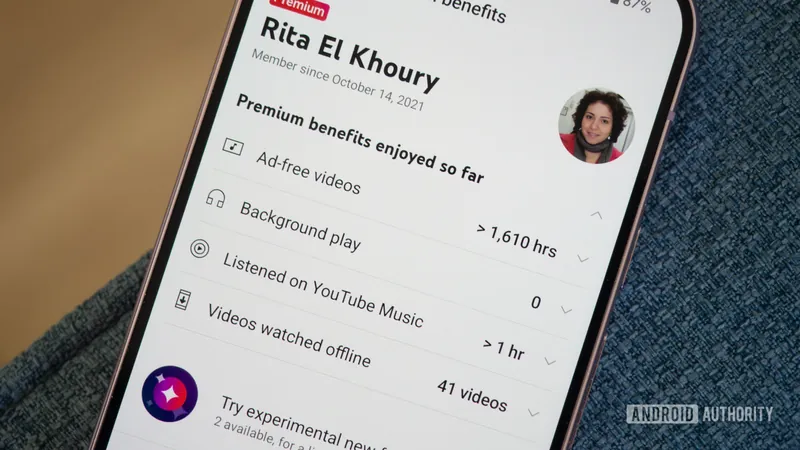
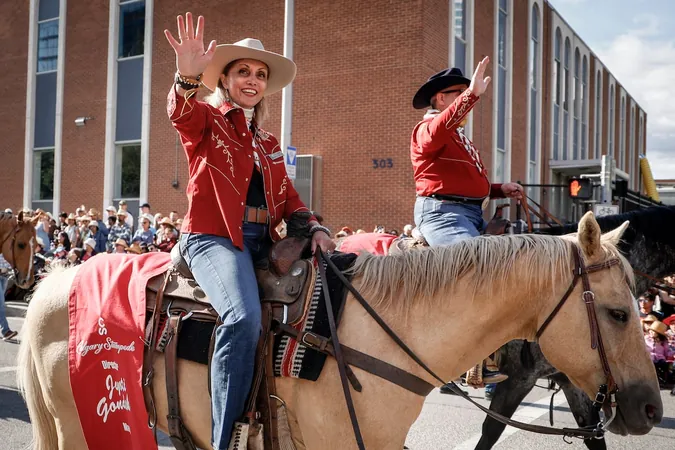

 Brasil (PT)
Brasil (PT)
 Canada (EN)
Canada (EN)
 Chile (ES)
Chile (ES)
 Česko (CS)
Česko (CS)
 대한민국 (KO)
대한민국 (KO)
 España (ES)
España (ES)
 France (FR)
France (FR)
 Hong Kong (EN)
Hong Kong (EN)
 Italia (IT)
Italia (IT)
 日本 (JA)
日本 (JA)
 Magyarország (HU)
Magyarország (HU)
 Norge (NO)
Norge (NO)
 Polska (PL)
Polska (PL)
 Schweiz (DE)
Schweiz (DE)
 Singapore (EN)
Singapore (EN)
 Sverige (SV)
Sverige (SV)
 Suomi (FI)
Suomi (FI)
 Türkiye (TR)
Türkiye (TR)
 الإمارات العربية المتحدة (AR)
الإمارات العربية المتحدة (AR)